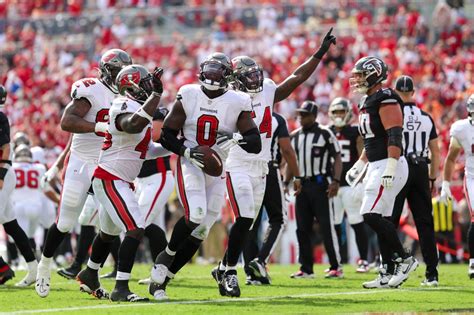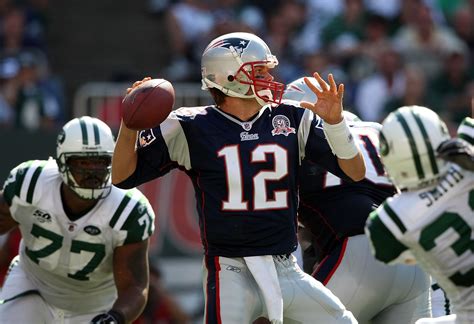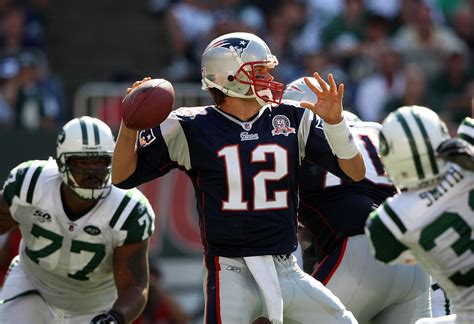Explore the Falcons’ offensive strategy, key players, tactical adaptations, and expected outcomes against the Buccaneers’ defense in this comprehensive analysis.In the world of professional football, strategy often dictates the outcome of a game. The Atlanta Falcons’ offensive strategy, particularly when facing off against the formidable Tampa Bay Buccaneers, showcases a blend of innovation, skill, and adaptability. This article delves into the intricacies of the Falcons’ approach, highlighting the key components that define their offense, the impact of standout players, and how they navigate the challenges posed by the Buccaneers’ defensive tactics. Furthermore, we will explore how the Falcons adjust their strategy throughout the game to maximize their chances of success. With a keen focus on expected outcomes, this analysis aims to provide an in-depth understanding of how the Atlanta Falcons leverage their game plan to achieve victory on the field. Join us as we break down the elements that make their offensive strategy a force to be reckoned with.
Understanding The Components Of The Falcons Offensive Strategy
The Atlanta Falcons have developed a dynamic offensive strategy that prioritizes versatility and adaptability. To effectively break down this strategy, we need to examine its core components, which include play-calling techniques, formations, and player roles.
1. Diverse Play-Calling
The Falcons employ a mix of traditional and innovative play-calling. This includes a balance of run and pass plays that keeps the defense on their toes. By using play-action passes and screens, the Falcons can create mismatches and exploit defensive weaknesses.
2. Formations and Personnel Packages
The team’s use of various formations allows them to maximize the talent on the field. For example, they often utilize two-tight end sets to enhance blocking schemes while maintaining the ability to attack downfield. The flexibility in personnel packages enables the offense to easily transition between run-heavy and pass-heavy scenarios.
3. Zone Running Scheme
The Falcons’ rushing attack is based on a zone running scheme that emphasizes lateral movement and quick cuts. This type of scheme allows offensive linemen to create running lanes by working together in unison, which is essential against aggressive defenses like the Buccaneers.
4. Emphasis on the Quarterback’s Decision-Making
Their offensive strategy places heavy reliance on the quarterback’s ability to read defenses in real-time. Quick decision-making can be the difference between a successful play and a turnover. The Falcons equip their quarterbacks with the necessary tools and information to execute plays effectively.
5. Utilizing Skill Position Players
The Falcons optimize the skill sets of their wide receivers and running backs by creating specific roles tailored to their abilities. By leveraging these players in creative ways—such as through motion before the snap or utilizing them in the passing game—the team can keep defenses guessing.
6. Quick Transition to Tempo
When the situation demands, the Falcons can shift to a no-huddle offense, allowing for quick transitions and increased tempo. This approach adds pressure on the opposing defense, making it difficult for them to substitute or adjust their strategy.
| Component | Description |
|---|---|
| Diverse Play-Calling | Balance of run and pass plays to exploit defensive weaknesses. |
| Formations | Utilizes various personnel packages to maximize talent. |
| Zone Running Scheme | Emphasizes lateral movement for creating running lanes. |
| Quarterback Decision-Making | Relies on real-time reads for successful plays. |
| Skill Position Utilization | Creative plays to optimize player skill sets. |
| Quick Tempo Changes | No-huddle strategies to increase pressure on defenses. |
Through these elements, the Falcons create a multifaceted offensive strategy that can adapt to various opponents, including the Buccaneers. This adaptability and innovation are key to their success on the field.
Key Players Influencing The Falcons’ Game Plan
In order to fully understand the Breaking Down of the Atlanta Falcons’ offensive strategy, it’s crucial to recognize the key players who significantly influence the game plan. Their unique skills and abilities not only shape the team’s approach but also dictate how well they can execute against tough opponents like the Buccaneers.
One of the standout players is the quarterback, who serves as the nucleus of the offense. His decision-making, accuracy, and ability to read defenses can make or break a game. Coupled with a solid offensive line, he can create ample opportunities for his teammates.
Running backs also play a pivotal role in the Falcons’ strategy. Their ability to gain yards on the ground helps establish a balanced attack, keeping the defense guessing. A strong running game can open up the play-action, which the Falcons often use to stretch the field and create mismatches.
Wide receivers are essential in executing quick slants and deep routes, providing big-play potential that is critical against defenses like the Buccaneers. A versatile receiving corps ensures that the quarterback has multiple options, which complicates the defensive coverage.
Moreover, tight ends offer a dual threat as both blockers and receivers. Their presence helps in maintaining a balanced offense and solidifying run blocking while providing a reliable outlet in the passing game.
It’s these players, each with their defined roles, that weave together to support the overall offensive framework. The adaptability and synergy among them are vital to successfully executing the Falcons’ game plan against formidable defenses, making it essential to break down their performances and contributions in each matchup.
Breaking Down The Buccaneers’ Defensive Tactics
When analyzing the upcoming matchup between the Atlanta Falcons and the Tampa Bay Buccaneers, it’s crucial to delve into the Buccaneers’ defensive strategy. Understanding their tactics can provide insights into how the Falcons may execute their offensive game plan effectively.
The Buccaneers have built a reputation for having a robust defense, thanks to several key principles that define their strategy:
| Defensive Tactic | Description |
|---|---|
| Rush Defense | The Buccaneers excel in stopping the run, often using a combination of defensive linemen and linebackers to clog running lanes. |
| Pass Coverage | They utilize a mix of man and zone coverage schemes to keep opposing receivers in check, relying heavily on their cornerbacks and safeties. |
| Blitzing Packages | With a strong pass rush, the Buccaneers frequently employ blitzing tactics to pressure the quarterback, often creating quick decision-making opportunities. |
| Turnover Creation | A key aspect of their defense is prioritizing turnovers. They actively look to strip the ball or make crucial interceptions at targeted moments. |
By breaking down the Buccaneers’ defensive tactics, it becomes evident that the Falcons will need to adjust their offensive strategy accordingly. The ability to read defensive formations, anticipate blitzes, and create mismatches will be vital for Atlanta to find success on the field.
Being aware of these tactics will help the Falcons’ coaching staff to craft effective plays that can exploit weaknesses and keep the Buccaneers off balance during their matchup.
How The Falcons Adapt Their Strategy Mid-Game
The ability to adapt during a game is crucial for any successful NFL team, and the Atlanta Falcons have demonstrated a knack for making effective adjustments that enable them to respond to the evolving dynamics of a match. This adaptability is particularly important when facing teams like the Buccaneers, who have a reputation for strong defensive tactics.
One of the pivotal strategies the Falcons employ involves analyzing the Buccaneers’ defensive formations. By studying their schemes on the fly, the Falcons can identify weaknesses and adjust their play-calling accordingly. For example, if the Buccaneers show a propensity for blitzing, the Falcons may shift to quick-release passing plays or running backs designed to exploit the gaps created by the rush.
Another essential aspect of the Falcons’ mid-game adaptation is the incorporation of personnel changes. If a specific player is having success against the Buccaneers’ defense, such as a wide receiver repeatedly getting open, the Falcons coaching staff may increase their target share to capitalize on this advantage. This flexibility allows for a more dynamic offensive approach, keeping the Buccaneers’ defense on their toes.
In addition to tactical changes, the mental aspect of adaptation plays a significant role. The Falcons often focus on maintaining high morale and communication on the field. This ensures that players are alert and responsive to changes in defensive pressure or shifts in momentum, which can greatly influence the game’s outcome.
By effectively utilizing these adjustments during a game, the Falcons can enhance their chances of success in the competitive landscape of the NFL. This continuous learning and evolving process is an exemplary representation of breaking down complex defenses into manageable strategies, ultimately leading to an efficient offensive performance.
Expected Outcomes From The Falcons’ Offensive Approach
When breaking down the Atlanta Falcons’ offensive strategy against the Buccaneers, several potential outcomes arise that can significantly impact the game’s result. The effectiveness of the Falcons’ offensive scheme can be evaluated across various dimensions, highlighting both statistical and strategic elements.
Firstly, if the Falcons’ offense successfully utilizes the run game, this can open up play-action opportunities, drawing Buccaneers’ defenders closer to the line of scrimmage. This strategic outcome typically leads to more yards per pass attempt and can potentially create big-play scenarios downfield.
Secondly, leveraging key players in the passing game, particularly dynamic receivers and tight ends, is likely to result in mismatches against the Buccaneers’ defense. Should the Falcons consistently exploit these mismatches, they might see an increase in completion rates and moving the chains effectively on critical third downs.
Moreover, the ability of the Falcons to adapt mid-game may result in more efficient offensive drives. By recognizing the Buccaneers’ adjustments, the Falcons could maintain a balanced approach, keeping the defensive line guessing and preventing them from settling into a rhythm.
Another expected outcome is the potential for turnovers. If the Falcons prioritize ball security and time management, they can limit possessions for the Buccaneers, thus controlling the game’s tempo and enhancing their chances of scoring without exposing themselves to defensive vulnerabilities.
The cumulative effect of all these strategies could lead to increased scoring efficiency inside the red zone. If the Falcons can translate their offensive metrics into points consistently, they will likely secure a favorable outcome against the Buccaneers.
Frequently Asked Questions
What is the main focus of the Atlanta Falcons’ offensive strategy against the Buccaneers?
The main focus is on establishing a strong running game and utilizing play-action passes to create mismatches in the Buccaneers’ defense.
How do the Falcons plan to exploit the Buccaneers’ defensive weaknesses?
The Falcons aim to exploit the Buccaneers’ aggressive pass rush by using quick throws and screens, thereby neutralizing their front seven.
Who are key players to watch in the Falcons’ offensive lineup?
Key players include quarterback Desmond Ridder, running back Tyler Allgeier, and wide receiver Drake London, as their performance will significantly impact the game’s outcome.
What role does the offensive line play in the Falcons’ strategy?
The offensive line’s role is crucial for providing protection for the quarterback and opening up lanes for the running game, allowing the Falcons to sustain drives.
How does the Falcons’ offensive approach differ from previous games?
In this matchup, the Falcons may adopt a more balanced approach, focusing on both the run and the pass to keep the Buccaneers’ defense guessing.
What adjustments might the Falcons make during the game if their initial strategy isn’t working?
If the initial strategy falters, the Falcons may shift to more vertical passing plays or emphasize utilizing tight ends to exploit mismatches against linebackers.
How important is game tempo in the Falcons’ offensive strategy?
Game tempo is vital, as the Falcons aim to control the pace, slow down the Buccaneers’ defense, and create opportunities to score efficiently.






